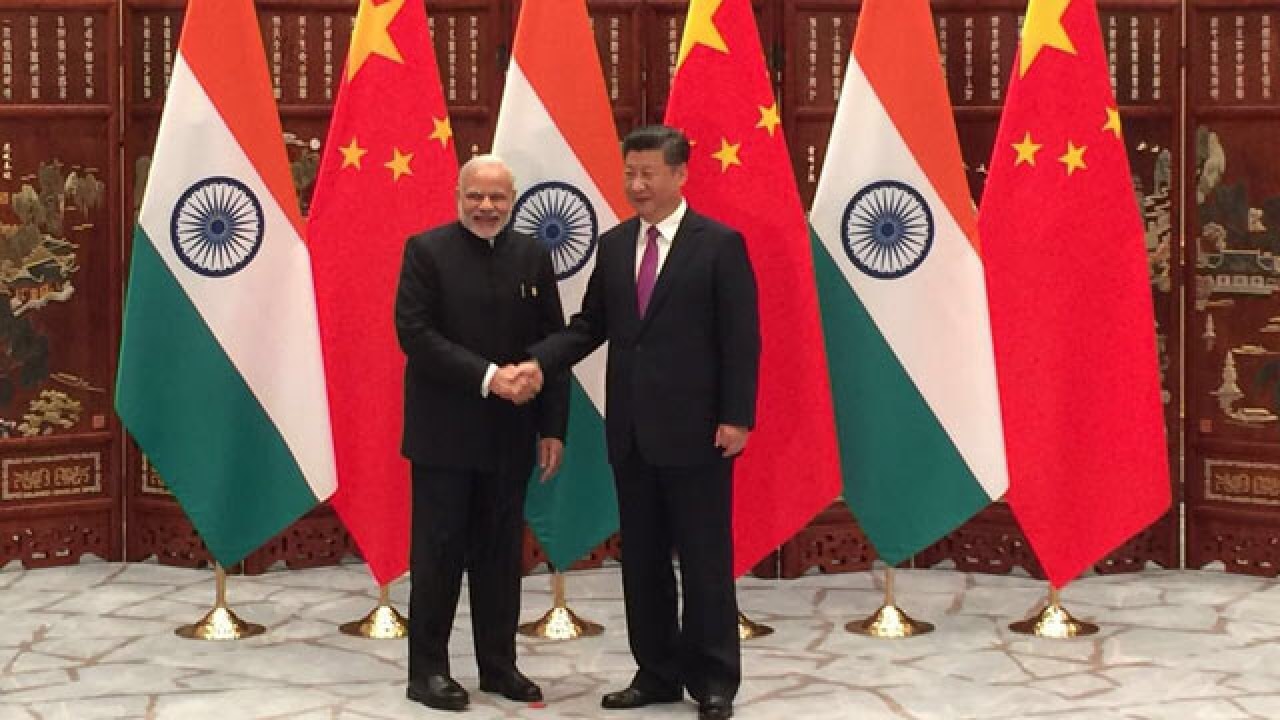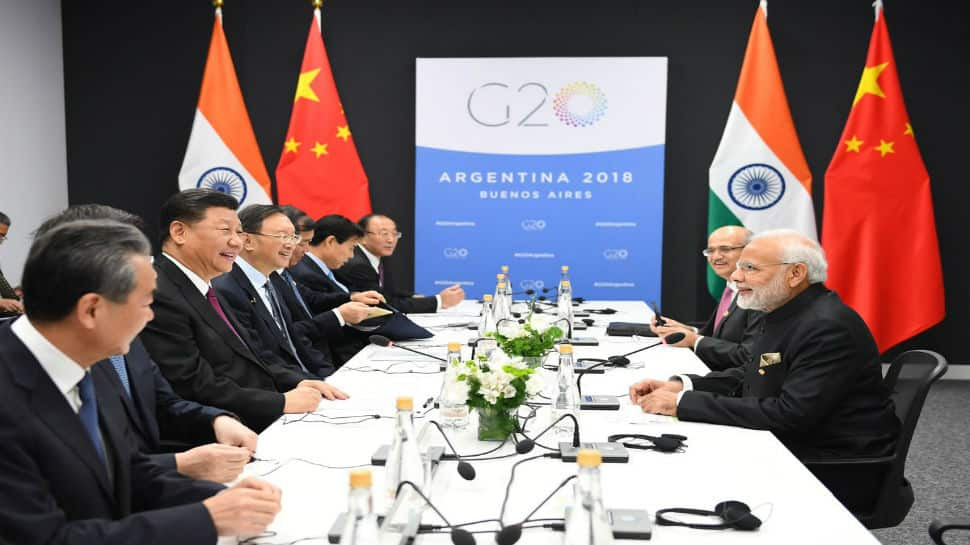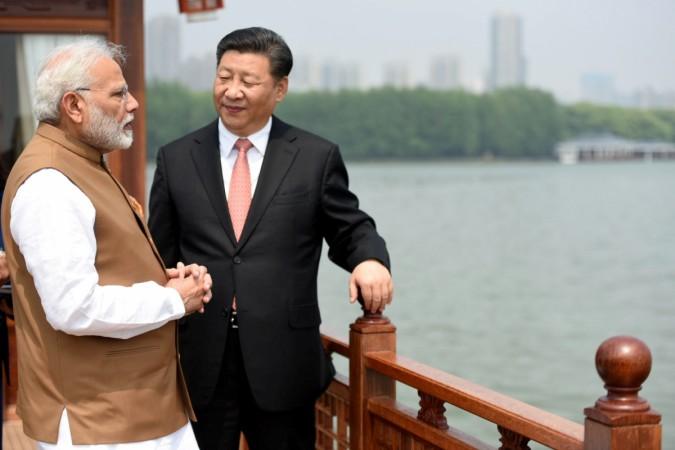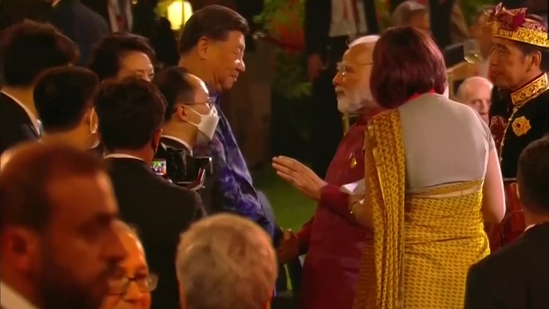PM Modi, China’s Xi spoke on need to stabilise bilateral ties at Bali G20 meet

PM Modi, China’s Xi spoke on need to stabilise bilateral ties at Bali G20 meet
The Ministry of External Affairs has confirmed that during the G20 summit in Bali last November, Prime Minister Narendra Modi and Chinese President Xi Jinping not only exchanged pleasantries but also engaged in a discussion about the importance of stabilizing bilateral relations between India and China. This confirmation came in response to Beijing’s claim that the two leaders reached an “important consensus” on stabilizing bilateral ties during their interaction at the summit.
According to the Ministry of External Affairs spokesperson, Arindam Bagchi, the conversation between Prime Minister Modi and President Xi Jinping took place at the conclusion of a dinner hosted by the Indonesian President during the G20 summit. The exchange of courtesies and the discussion on the need to stabilize bilateral relations highlight the importance of maintaining constructive dialogue between the two countries.
The confirmation from the Indian government regarding the interaction between the two leaders at the G20 summit helps to address any confusion or ambiguity surrounding the nature of their discussions. Such interactions and discussions at international forums play a crucial role in fostering understanding and finding common ground between nations with complex relationships.
As India and China are two major Asian powers, stable and cooperative bilateral relations are of paramount importance for regional and global stability. Both countries share a history of cooperation and challenges, and maintaining open channels of communication is essential to address any differences and promote mutual understanding.

Overall, the exchange between Prime Minister Narendra Modi and Chinese President Xi Jinping at the G20 summit underscores the significance of diplomatic engagements in addressing bilateral issues and building a foundation for stable relations between the two nations.
Ministry of External Affairs spokesperson Arindam Bagchi reiterated India’s consistent stance on the border issue with China in response to the Chinese foreign ministry’s readout of the meeting between National Security Advisor (NSA) Ajit Doval and Chinese top diplomat Wang Yi in Johannesburg. Bagchi emphasized that resolving the border issue along the Line of Actual Control (LAC) in the western sector of the India-China boundary and restoring peace and tranquility in the border areas are crucial for the overall resolution of the matter.

The Indian government’s response aims to clarify its position and emphasize the importance of addressing the border issue to achieve stability and constructive relations between India and China. The LAC, which separates the two countries in the disputed border regions, has been a longstanding point of contention, leading to occasional tensions and standoffs in the region.
The Indian government’s stance underscores its commitment to finding a peaceful and mutually acceptable resolution to the border dispute, which can lay the foundation for stable and harmonious bilateral relations. By highlighting the significance of restoring peace and tranquility in the border areas, India seeks to create an environment conducive to constructive dialogue and cooperation with China.

The readout from the Chinese foreign ministry had claimed that Prime Minister Narendra Modi and President Xi Jinping reached a consensus on stabilizing relations during their interaction at the G20 summit in Bali. In response, the Indian government clarified its position, emphasizing that resolving the border issue is a key factor in achieving stability and overall resolution of the matter.
Efforts to find common ground and work towards resolving the border issue through diplomatic means remain essential for both India and China. Addressing the border dispute can help pave the way for enhancing cooperation in various areas and promoting regional and global peace and stability.
The Ministry of External Affairs had previously acknowledged the exchange of pleasantries between Prime Minister Narendra Modi and Chinese President Xi Jinping at the G20 summit in Bali. This meeting marked their first public interaction since the border standoff began in May 2020, indicating an effort towards engagement and communication between the two leaders.
MEA spokesperson Arindam Bagchi clarified that while the foreign secretary did mention the exchange of courtesies between the leaders, he might not have highlighted the second part of the interaction. During their meeting, there was a general discussion on the importance of stabilizing bilateral relations between India and China. The fact that such discussions took place at a high-level international forum like the G20 summit demonstrates the significance both countries attach to managing and improving their relations.
Despite the ongoing standoff at certain friction points in eastern Ladakh, both India and China have engaged in extensive diplomatic and military talks to achieve disengagement in several areas. The efforts towards finding common ground and easing tensions are crucial for maintaining peace and stability in the region.
The exchange of pleasantries and discussions on stabilizing bilateral relations can be seen as a step towards fostering dialogue and understanding between the two countries. It indicates a willingness to engage in constructive talks to address differences and find solutions to existing challenges in the India-China relationship.
While the border situation remains complex, the commitment to diplomatic engagements and dialogue provides hope for the resolution of issues and the establishment of peaceful relations between India and China. The efforts made by both sides in disengagement talks reflect a shared desire to avoid escalation and find mutually acceptable solutions to contentious matters.
Indeed, the relations between India and China experienced a significant downturn after the intense clash in the Galwan Valley in June 2020. This violent confrontation represented the most serious military conflict between the two nations in many years and had a profound impact on the bilateral ties.
Regarding the Chinese President’s attendance at the G20 summit in Delhi, Ministry of External Affairs spokesperson Arindam Bagchi emphasized that India is making all necessary preparations for the successful participation of all the leaders who have been invited to the summit. The G20 summit is an important international event that brings together leaders from major economies to discuss and address global challenges.
Despite the complexities in India-China relations, India is taking a proactive approach to ensure the smooth and productive participation of all invited leaders, including the Chinese President. The G20 summit serves as an opportunity for dialogue and cooperation on various global issues, and India is committed to facilitating a conducive environment for constructive discussions among all participants.
While the G20 summit is an occasion for leaders to engage in diplomatic interactions, it is worth noting that the relations between India and China remain subject to the context of their ongoing bilateral issues. The successful organization of the G20 summit in Delhi underscores India’s commitment to engaging with the international community and fostering meaningful dialogue to address global challenges collectively.





